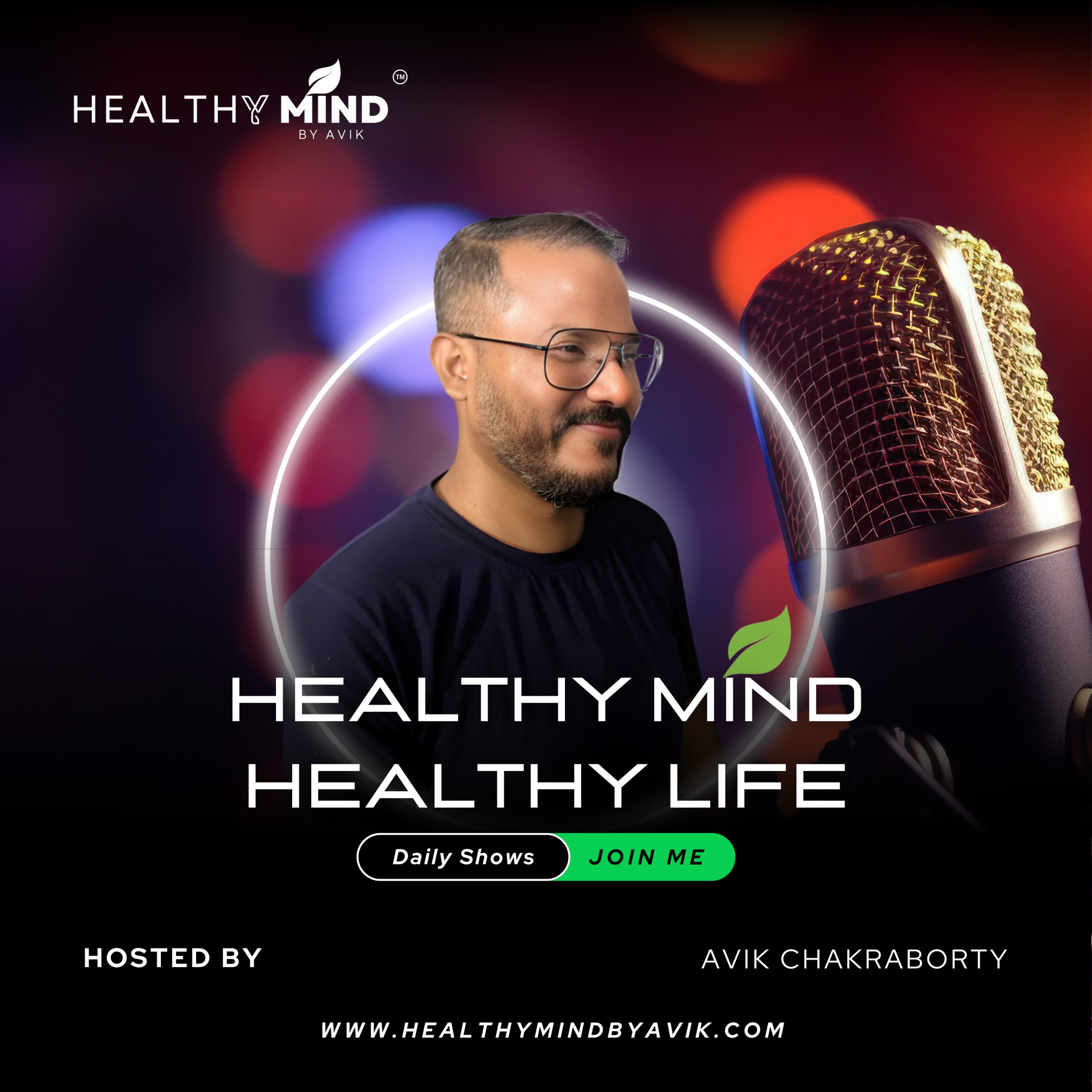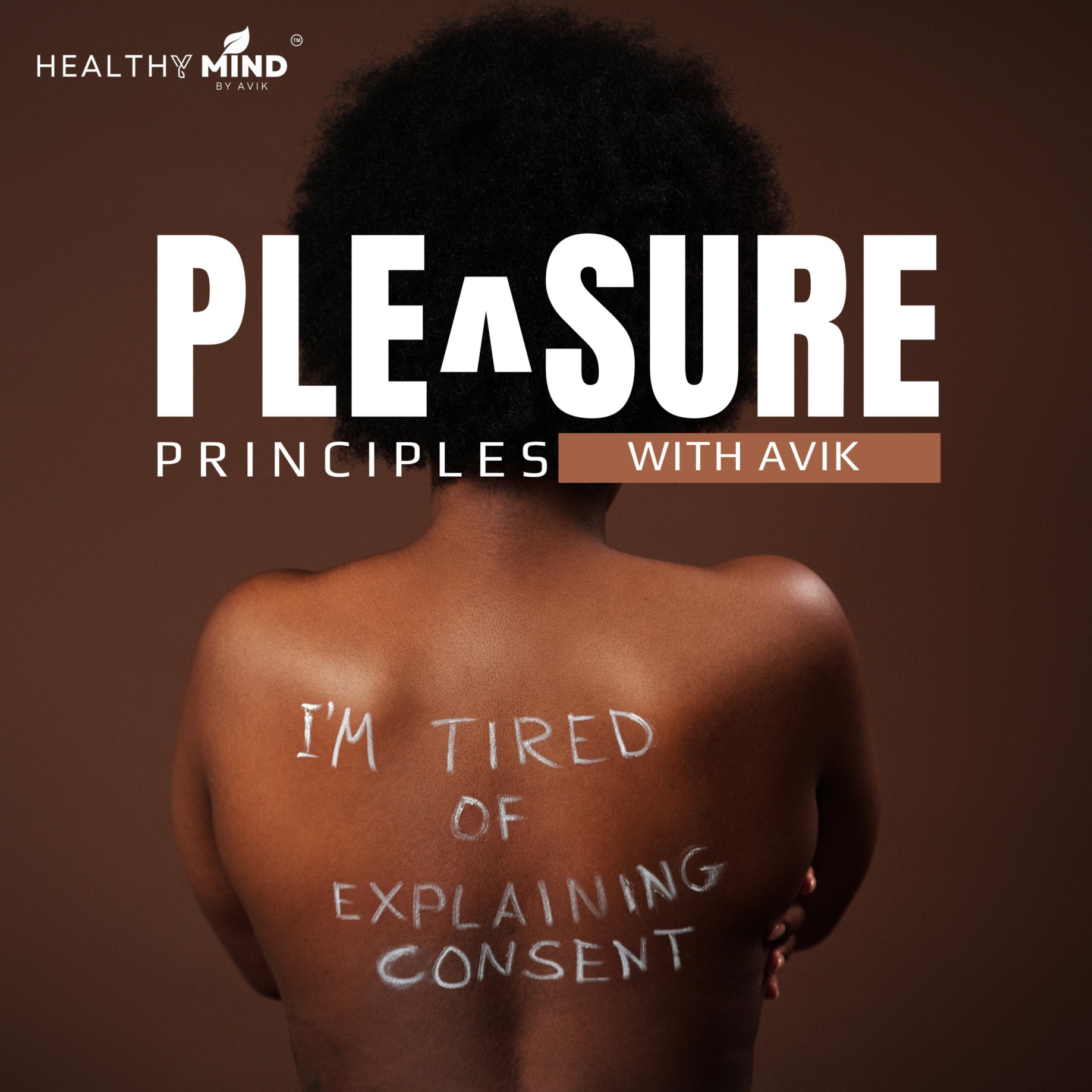
Mind Over Masculinity
Let’s stop asking men to "man up" and start asking how we can lift them up. After all, mental health is not just a women’s issue or a men’s issue—it’s a human issue.
Take the first step today. Talk, listen, and advocate. Together, we can make a difference.
Mind Over Masculinity
Redefining Resilience: Embracing Vulnerability and Mental Health for Personal Growth and Overcoming Adversity with Randi-Lee Bowslaugh
Can mental resilience be redefined, and is vulnerability a hidden strength in the realm of competitive sports? Join us as Randi-Lee Bowslaugh, a dedicated mental health advocate, author, and competitive kickboxer, shares her transformative journey of battling depression and PTSD. We'll discuss the heavy burden of maintaining a facade of toughness, especially for male athletes, and the critical need to break the silence surrounding mental health. Randy's candid account challenges outdated narratives and demonstrates that acknowledging when something is wrong can be the first crucial step toward healing. Her story serves as an inspiring reminder of the power found in confronting one’s own internal battles.
The conversation unfolds to reveal the complex layers of mental recovery post-trauma, such as surviving cancer and coping with depression's multifaceted nature. We highlight the significance of proactive mental health care and how tools like therapy, music, and medication played pivotal roles in Randy's healing process. By sharing personal lows and the steps taken to rise from them, we offer insights into the often-overlooked emotional aftermath of serious illness. This episode underscores the importance of seeking help and the courage it takes to turn pain into purpose, offering hope to anyone facing similar struggles.
Automate Social Media Post
Make Short Clips From Long Videos
Loved by 4M+ marketers, entrepreneurs & creators
Create and translate videos
Create and translate videos with HeyGen's AI Video Generator
Buzzsprout Podcasting
Disclaimer: This post contains affiliate links. If you make a purchase, I may receive a commission at no extra cost to you.
-----------------------------------------------------------------------------------------------------------------
Want to be a guest on Mind Over Masculinity? Send me a message.
-----------------------------------------------------------------------------------------------------------------
Stay Tuned And Follow Us!
- YouTube - https://www.youtube.com/@healthymind-healthylife
- Instagram - https://www.instagram.com/podhealth.club/
- Threads - https://www.threads.net/@podhealth.club
- Facebook - https://www.facebook.com/podcast.healthymind
- LinkedIn - https://www.linkedin.com/in/newandnew/
Hi everyone, welcome back to Mind Over Mastery, the podcast where we break down the walls of mental health, redefine resilience and challenge the outdated narratives around what it means to be strong. I'm your host, avik, and today we are diving into a conversation that's a raw, real and absolutely necessary Depression and PTSD. So these aren't just clinical terms or the buzzwords. So these are live experiences, the battles fought in silence and struggles that too many men feel they have to face alone. But not today. Today we are joined by someone who knows exactly what it means to fight, and not just in the ring but in the life Randy Lee Boslum. So welcome to the show, randy.
Speaker 2:Hi, thank you for having me.
Speaker 1:Lovely, lovely. So, randy, like before we start our conversation, I'd quickly love to introduce you to all of our listeners. Dear listeners, randy is an author, mental health advocate, a competitive kickboxer. So, be aware, she's a kickboxer, definitely, and a warrior in every sense of the word, and she faced depression, ptsd and even cancer and still came back swinging, literally yes. So she's represented Team Canada. She's a mom, a grandmother, a coach and someone who's turned her pain into the purpose. So, randy, welcome to the show. I can't wait for the discussion.
Speaker 2:Thanks, you make me sound so good. Yeah, you are.
Speaker 1:Definitely so, randy. You have been so open about your own struggles with the depression and the PTSD, so if you can take us back to a moment when you realized that this isn't just a bad day, this is something deeper.
Speaker 2:Oh, that's a good. I've done a lot of interviews. No one's ever worded it like that. So I mean I would say that I didn't realize that that it was something deeper until I was an adult. Probably the moment that is popping in my head right now I was working as an employment counselor and, um, there's just a whole lot going on. So my youngest had been diagnosed with autism. She was struggling a lot in school, getting suspended a whole bunch, and just being an employment counselor, you're also dealing with everyone else's issues and troubles and it just was all very much and I just broke down crying at work and I'm like, wow, this is definitely, um, this is definitely more than a regular typical bad day.
Speaker 1:This is much deeper perfect and also uh like, uh. What was the hardest part about uh admitting that to yourself?
Speaker 2:um, so I had kind of already admitted to myself that I had depression at at times, but that moment that I referred to was the moment that I went yeah, okay, I have depression and I can't deal with it all by myself anymore.
Speaker 2:So it was a little bit difficult to be like I've lived. I would say I lived with depression since I was probably about 13, just not knowing what it was but at that moment and I was probably mid-20s, so a good 10 years at least, living with it in my head. But now it was spilling out of my head, it was spilling out into work, it was spilling out into family. It was just I couldn't contain it anymore, and so admitting that I needed something else, that I couldn't do it by myself, that was definitely a tough one, and, um, admitting it to myself was not the easiest, but admitting it out loud to somebody else was 10 times worse so I mean, it's um I have to say this like it's it's crazy how we can be so physically tough, especially as kind of athletes, and yet the medal battles can feel even harder it's so true.
Speaker 2:Like you're, I mean, for kickboxing I'm going, I'm getting beat up pretty much every day, and yet that's fine, and then I can't even deal with my own brain. It's a huge struggle. And as a competitive athlete, there's another layer to that as well, because, especially in kickboxing, you have to be a certain weight to fight in the weight class and everything. So it adds another layer of mental trouble when you're also trying to compete at a specific level, when you're dealing with depression. But now you have to also consider how you're going to maintain the fight weight and how you're going to maintain a fight plan when your brain is yelling at you all of these very nasty things.
Speaker 1:Exactly, yeah. So I mean, as a competitive kickboxer, you have had to embody the strength in so many ways. So do you think that the idea of toughness in sports and fitness sometimes stops people, especially men, from seeking help for their mental health?
Speaker 2:A hundred percent. Yeah, so it's hard. I remember this one time specifically. So in 2015, I had won the national championship in my division. So in 2016, I wanted to go back and refight and, you know, maintain my title.
Speaker 2:But everything that was going on with my brain and my depression made training very difficult. I couldn't focus on anything and ultimately I lost. And it wasn't because I wasn't physically capable. It literally was about the mental ability to maintain the focus in order to do the fight. And it definitely is hard to admit that out loud. I didn't want to admit that out loud. I didn't want to tell my coach no, actually I should not be fighting right now. I am not mentally stable to be fighting right now.
Speaker 2:And, yeah, I think for a man it's that much harder. My husband and I talk about it all the time because he also he didn't kickbox, but he did competitive jujitsu and we talked about it a lot where it's that much more difficult for a man to admit that they are having trouble mentally than it is for a female. It's a little bit more accepted for a female, but in the world of athletics it's difficult all around because if you're not mentally ready, you can be denied your competition and it's like but I want to compete, but really I shouldn't have at that time. And I think it is really more difficult for men, because there is already the layer of stigma of being a man and you have to suck it up and you just need to do what you need to do, um, and then you add the layer of being a competitive athlete and again you suck it up, walk it off and you can't walk off something.
Speaker 1:That's mental that's really perfect and and also, like um, ptsd is often associated with the veterans, but it can come from so many different life experiences. For you, like, what was the experience that led to PTSD and how did you start to recognize its effects? How?
Speaker 2:did you start to recognize its effects? Yeah, so, like you said, it's often associated with veterans or one specific incidence. So a lot of times it will be like so if somebody was assaulted and it's one specific incidence that can lead to it. But there's a lot of research and expansion now on what would be complex PTSD, which is multiple incidences they can be smaller but they're multiple incidences all adding up to the trauma reaction that leads to PTSD.
Speaker 2:So for me as a teenager, my stepfather was an alcoholic and very verbally, emotionally abusive, and then my brother was in and out of jail and there was just a lot of stuff that I didn't know how to deal with as a teenager.
Speaker 2:I also didn't know how to ask for any help Because, again, like we've talked about, you don't tell people, you keep it hidden, and so all of those small things all added up to the trauma reaction of if somebody was up to the trauma reaction of if somebody was my biggest one that I had to work on a lot in therapy was somebody raising their voice, not even necessarily at me, but just raising the voice in the same room as me, and I would just get this complete visceral reaction to it where I would want to run and hide and my heart would be pounding and I would be scared like scared to death.
Speaker 2:And so that, like I said, it can be an adding on of multiple incidences. It doesn't have to be one big one and I think that type of PTSD, where it is smaller incidences, can be harder for people to admit or to recognize because it is a whole bunch of small things leading up to it. You can't just lead it back to one specific time. And I know your audience is mostly men and I think for them it's even harder because they're admitting more than one thing has happened as well to lead to something like that, which can be, again, very hard to do to lead to something like that, which can be, again, very hard to do.
Speaker 1:Exactly, I have to say definitely. And what do you wish more people understood about PTSD?
Speaker 2:especially those who haven't experienced it firsthand. So I think the big one I would say is that PTSD doesn't relate to one incident. It can be multiple. But the other thing would be, if somebody is having a reaction and you are like, huh, why Nothing's really going on, it could be that they are reliving whatever trauma it was, so it might not have anything to do with you. It could just be that they are reliving it. So, as the onlooker, be patient with them, give them a little bit of space and time and don't try to push them. And, as the person that might be having that reaction, try to remind yourself and this is easier said than done, but try to remind yourself and this is easier said than done but try to remind yourself that you are not in that situation still and take some deep breaths and remind yourself that you are not where you were and you are safe and where you currently are exactly, yeah, I mean, that's such a powerful insight.
Speaker 1:Ptsd isn't just about what happens to you, but it's all about what happens inside you after that event yeah has that.
Speaker 1:That I mean. That's so deep, I mean, and the hardest part, it doesn't just disappear over time, it remains, remains with you. So that's very, very that's definitely a sad part of it, for sure. So, yeah, yeah. So, as an athlete and the coach, you know the importance of physical recovery after a fight. But what about the mental recovery after a traumatic event, after battling cancer and after fighting through depression? How do you heal mentally?
Speaker 2:well, that is actually way harder than healing physically because there isn't one direct path, right? If you have a bruise from a, you put ice on it. You help the swelling go down. When you you, I have a, you know I'm going to say bruise on your, in your mental, just because I'm using that analogy. You can't put ice on it. It doesn't work that way.
Speaker 2:So there has definitely been times where I'm I struggle significantly with trying to figure it out, and when you're in a moment especially if we talk about a PTSD reaction, and you're in that moment and you're feeling all of those reactions, you're put back in the situation. It's really hard to say, okay, I'm safe now and calm down and breathe. Yeah, I know, I said to do it, but it's harder than to actually do it in the moment. The best thing I would say is seek help in those moments, like before those moments happen, rather. So if you've noticed that you're dealing with whether it's depression or you've had reactions that maybe it's PTSD, you don't know, but maybe you know it could have something to do, that Seek help first, right, go just talk to a therapist would be my best advice. That has helped me significantly so that when those moments happen that used to give me those reactions. They don't anymore, so I don't even have to relive through a lot of those moments. It happens occasionally, but not as often, because I've talked through a lot of this stuff and she's let me see things from different angles where I can realize that it's I'm not that same person and I'm not in that same situation before something even happens.
Speaker 2:And then you mentioned the cancer and yeah, that's a. That's a tough one because at the time it happened it was very much focused on the physical Just take out the parts I don't need anymore, let's just do the surgery, let's just get better, let's just heal. It really didn't sink into my mental side of things until probably a good year after I was cleared, because I was so focused on just surviving that day and surviving whatever happened at that time that it took so long to go. Holy moly, I could have died Like I had cancer what the heck. But it took that long for it to even sink into my mental side, to then work through that emotional side of things. So it can take a long time to heal a mental let's call it injury a mental injury for now, as opposed to a physical injury understood, understood and uh, okay.
Speaker 1:And also on this, like, uh, depression isn't just the sadness, it's the numbness, it's exhaustion, it's feeling like you're trapped in your own head. So what's the? I mean, what was one of your lowest moments? And uh, how did you climb out of it?
Speaker 2:oh, that's a good one. So I would say one of the lowest moments I was um, driving to work was, um, driving to work and I was. I was crying, I was done, I was just um. I had made a plan I was going to drive off a bridge and that was just. That was going to be it. There'd be no more. There would be nothing left. Um, and I have to drive over like three bridges to get to that job at the time. So a lot of opportunity there. I got through it.
Speaker 2:Really, listening to music helps me at least drive over those bridges and not pull the wheel to drive off as I had planned. So finding music that really put me into a little bit of a I don't want to say a better mood, but just in a different, different mindset, focusing on something else, and then calling my therapist and talking to her about it and figuring out something else that could work. Adjusting medications was really important. So I'm a big advocate that if you need medication, by all means take it. Not everybody does, some people can deal with it without, but some of us need it and there is absolutely no shame in needing it, and my husband likes to equate it to he's type 1 diabetic. So he said to me the one day he goes, because I was telling him I was thinking about not taking my antidepressants anymore, and he goes OK, so I should just stop taking my insulin I go. No, I don't want you to die. He goes exactly.
Speaker 1:Understood, understood, that's lovely. And then, like you have been through a lot like depression, ptsd, cancer, elite level sports, definitely parenting. And if you could go back and tell your younger self one thing about the mental health, what would it be?
Speaker 2:So many things come to my mind right now, but I think I'm going to say it's okay to admit it. That would be if I could only tell my younger self one thing about it it's okay to admit that something is wrong.
Speaker 2:Got it All right and for those, who are listening, especially men, who might still be holding everything in. Then what's your message to them? Same, it's okay to admit it. For sure, it is okay to admit it, Perhaps you I mean admitting it to yourself is obviously the first step. But you don't have to admit it, you know, on a big podcast like this and spread it to the whole world. But admitting it to yourself and then maybe finding one other person that you trust, whether it is a spouse, a friend, a parent, a therapist to talk about it with I highly recommend a therapist but admitting it and giving yourself permission to be okay with the fact that you might need a little bit of help we all do, and it's okay.
Speaker 1:Perfect, okay, great. This conversation has been real, raw and necessary, I mean, just like every fight worth winning. So depression and PTSD don't discriminate. They don't care how strong you are, how successful you are or how much you pretend everything's fine, but what does matter, like, how you respond, how you choose to fight for yourself. Randy, thank you so much for bringing your energy, your honesty and your resilience to this conversation, and you are the living proof that mental health struggles don't define us. How we show up despite them does yes, thank you. So, everyone who is listening, if you are struggling, you are not alone. Reach out, talk to someone and remember that true strength isn't in how much weight you can lift or how hard you can punch or how long you can tough it out. True strength is in choosing to heal. So if this episode spoke to you, dear listeners, share it with someone who needs to hear it. Let's keep this conversation going Until next time. This is your host, avik. Stay strong, stay real and take care of yourself. Thank you so much. Bye.







